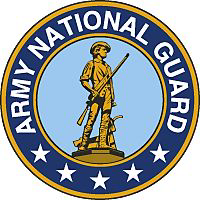JFK SPEAKS TO THE NATION ON CIVIL RIGHTS
Washington, D.C. (JFK+50) President John F. Kennedy was criticized for not taking the decisive action on civil rights that many in the movement had expected. Although as a presidential candidate, JFK talked about what needed to be done for civil rights, it didn't translate into action during the first two years of his presidency.
All that changed on June 11, 1963 when JFK delivered a speech from the Oval Office which was the first ever given by a POTUS exclusively on the issue of civil rights.
The address came in the aftermath of an attempt by Alabama Governor George C. Wallace to stop two African-American students from being admitted to the state university at Tuscaloosa.
JFK called civil rights...
"a moral issue....as old as the Scriptures and as clear as the American Constitution."
President Kennedy began his address with these words...
"This afternoon...the presence of Alabama National Guardsmen was required on the University of Alabama to carry out the...order of the U.S. District Court. That order called for the admission of two clearly qualified Alabama residents who happened to have been born Negro.
I hope that every American...will...examine his conscience... This Nation was founded on the principle that all men are created equal, that the rights of every man are diminished when the rights of one man are threatened.
If an American, because his skin is dark, cannot eat lunch in a restaurant open to the public, if he cannot send his child to the best public school available, if he cannot vote for the public officials who represent him, who would be content to have the color of his skin changed and stand in his place."
SOURCE
"Address on Civil Rights (June 11, 1963)," Miller Center, www.millercenter.org/
JFK Speaks on Civil Rights
Washington, D.C. (JFK+50) President John F. Kennedy was criticized for not taking the decisive action on civil rights that many in the movement had expected. Although as a presidential candidate, JFK talked about what needed to be done for civil rights, it didn't translate into action during the first two years of his presidency.
All that changed on June 11, 1963 when JFK delivered a speech from the Oval Office which was the first ever given by a POTUS exclusively on the issue of civil rights.
The address came in the aftermath of an attempt by Alabama Governor George C. Wallace to stop two African-American students from being admitted to the state university at Tuscaloosa.
JFK called civil rights...
"a moral issue....as old as the Scriptures and as clear as the American Constitution."
President Kennedy began his address with these words...
"This afternoon...the presence of Alabama National Guardsmen was required on the University of Alabama to carry out the...order of the U.S. District Court. That order called for the admission of two clearly qualified Alabama residents who happened to have been born Negro.
I hope that every American...will...examine his conscience... This Nation was founded on the principle that all men are created equal, that the rights of every man are diminished when the rights of one man are threatened.
If an American, because his skin is dark, cannot eat lunch in a restaurant open to the public, if he cannot send his child to the best public school available, if he cannot vote for the public officials who represent him, who would be content to have the color of his skin changed and stand in his place."
SOURCE
"Address on Civil Rights (June 11, 1963)," Miller Center, www.millercenter.org/
JFK Speaks on Civil Rights
June 11, 1963
Photo by Abbie Rowe
JFK Library








